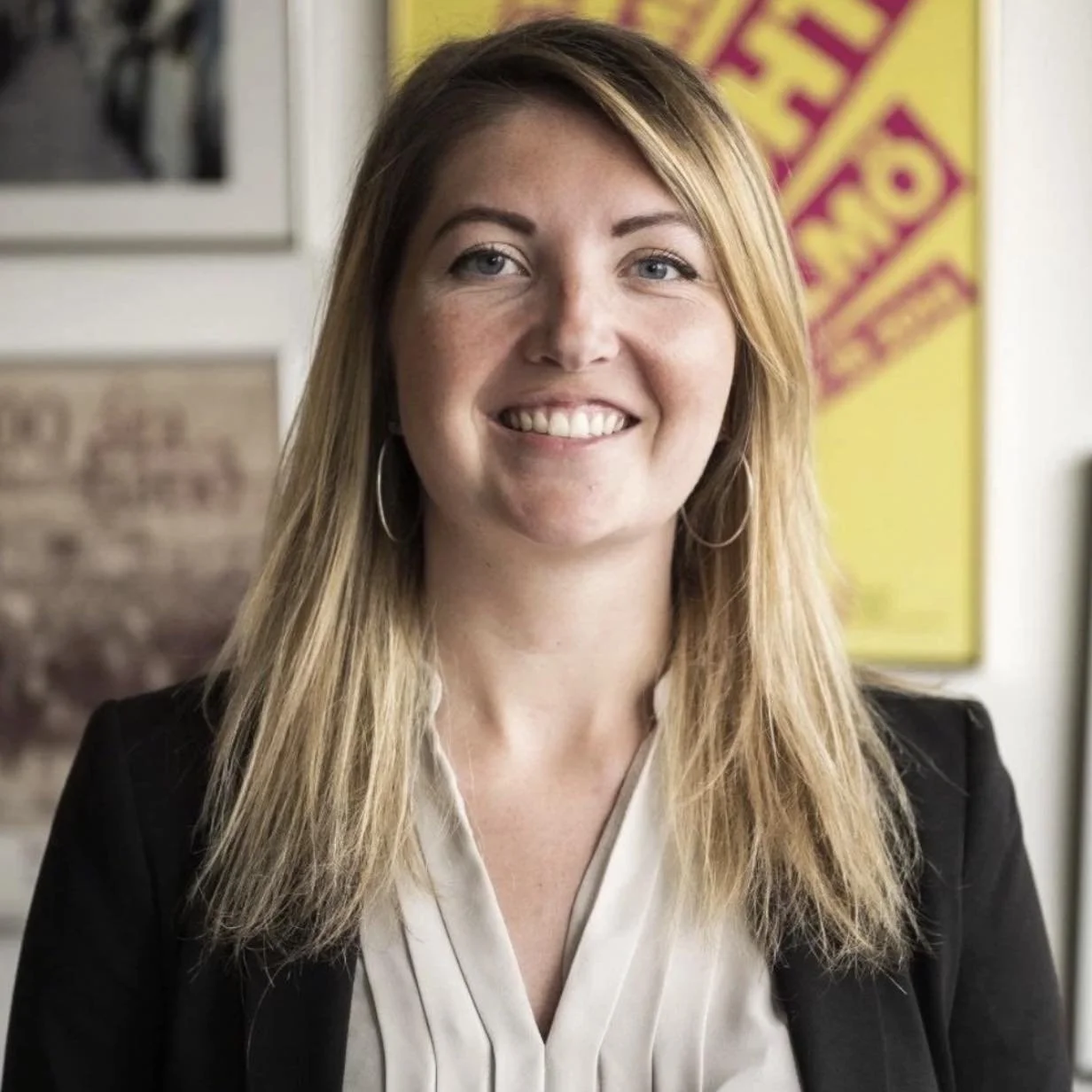Rut Einarsdóttir
Pronouns: She/Her
Organisations: Icelandic Women’s Rights Association; Icelandic Human Rights Centre
Country of origin: Iceland
Profile
Rut Einarsdóttir is a peacebuilder from Iceland, a country consistently ranked as one of the most peaceful countries on earth. She is the former secretary general for the Icelandic Women’s Rights Association (IWRA); and chair of the Icelandic Human Rights Centre. She is earning a master’s in International Affairs. She advises parliament, writing reviews and commenting on proposed bills and amendments by the governing bodies when they pertain to women’s issues and gender equality. She also holds conferences and seminars for government agencies, NGOs, and businesses, proposing initiatives and policy changes in order to promote a more equal society for women, globally.
Rut said that ‘peacebuilding is also the prevention of conflict.’ She is devoted to engaging young Icelanders in peacebuilding issues around the world. She said she feels a duty to act and to help. She founded a grassroots initiative in Bangladesh during her time at university, collecting waste on the street, which ultimately resulted in a policy change in the capital, Dhaka. Furthermore, in Iceland, she uses her extensive knowledge on peacebuilding issues globally to educate and inform Icelandic students about these issues.
Rut is involved at the top of the decision-making processes, working through the United Network of Young Peacebuilders (UNOY) with bodies such as the UN and the Council of Europe, as well as the Icelandic parliament.
Story
‘Just start. That’s the hardest, and most important part. There’s no one right path, do what you can.’ Rut Einarsdóttir is involved with many organisations, helping in any way she can, a true practitioner of what she preaches. What grew from her just-get-started attitude is an inspiring testament to the significance of both grassroots and high-level policy initiatives.
Rut’s peacemaking career began during her bachelor’s studies in Japan. She and some friends started as volunteers. Her practical introduction to peacebuilding came when she travelled to a friend’s hometown – Dhaka, the capital of Bangladesh, at the time the second-least liveable city after Aleppo, Syria. There she helped organise a project to clean the streets. What was intended to be a small-scale project with a few friends from university spiralled into a massive two-week campaign. An image of their efforts circulated on social media, culminating in the city’s mayor joining the effort on the final day. Her actions resulted in policy changes to Dhaka’s waste management policies.
This experience of making a difference inspired Rut’s decision to further commit to the field of peacebuilding. She attended activism training with UNOY, met and became friends with like-minded peacebuilders from around the world, and began working with their European Youth Advocacy Team. Her team attended UN meetings and conferences lobbying for, among other things, the passing of Resolution 2250, a resolution which increases the impact that young people and civil activists have on the UN decision-making process.
Rut said she has faced different challenges. Firstly, COVID-19 took a massive toll on her work due to accessibility. Resolution 2250 was being bypassed – diplomats held meetings with civil society without the input of youth representatives, citing public health concerns. Online meetings made networking and informal meetings – one of the pillars of the UNOY peacebuilding initiative – much more difficult to access. After the pandemic, Rut said lack of motivation and working for bad, and sometimes discriminatory leadership all presented challenges. Tokenism due to gender and age also became an obstacle to the goal of being taken seriously.
She said, nevertheless, grassroots initiatives remain a constant, integral part of her work. She used the pandemic as an opportunity to push for a freeze on weapons and encouraged governments globally to divert the funds towards healthcare – an initiative eventually endorsed by the Vatican. She said she has learned from her network of peacebuilders about persistent human rights issues not consistently reported on. These include the lack of press freedom in Eritrea – freedom of speech in Eritrea is worse even than in North Korea. She also teaches, spreading the word to Icelandic high schoolers, who participated in a global campaign, standing with Eritreans. Rut said these children had a significant impact on Eritreans, as they heard their issues being heard and highlighted.
Rut’s expertise includes working with high-level institutions such as the Council of Europe, the UN, and most recently, the Women’s Rights Association. But she remains committed to small-scale changemaking within her community. ‘Is it better to impact a large group of people on a small scale? Or a few people very dearly…? I have yet to find out, but if I impact only one person in a positive way, then I am happy.’
Published in 2025


